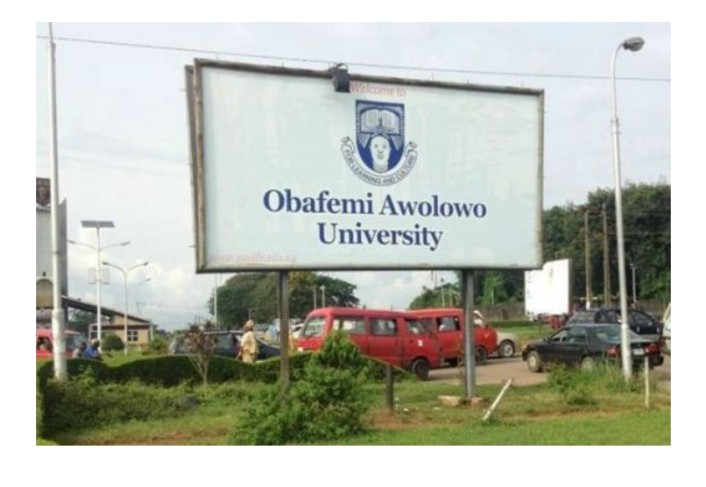
Blockchain technology gains momentum in OAU, FUTO

The enthusiasm displayed by Nigerian tertiary students for blockchain technology has been hailed as a promising sign for the global competitiveness of Nigerian youth and the country’s economic and technological advancement.
Adedayo Adebajo, the co-founder of ICP Hub Sahara, emphasised the importance of nurturing the younger generation by providing platforms where they can showcase and refine their knowledge of Internet Computer Protocol (ICP).
Reflecting on the recent successes at the ongoing second edition of the ICP DecaHack Cohort, held at Obafemi Awolowo University (OAU), Ife, and the Federal University of Technology, Owerri (FUTO), Adebajo noted that such initiatives are crucial for positioning Nigerian students as future leaders in blockchain technology.
The national blockchain hackathon, DecaHack, was set up by ICP Hub Africa for 10 universities across sub-Saharan Africa and aimed at igniting interest in blockchain technology among Nigerian students by offering valuable insights and inspiration.
The top five startups in the competition will receive up to $25,000 in equity-free grants.
Adebajo’s conviction was strengthened by the impressive turnout at OAU, where over 120 students participated despite the ongoing semester examinations.
In his introduction, Adebajo described ICP as a decentralized, public, and open-source blockchain network that enables the creation of smart contracts, decentralized applications (dApps), and decentralized finance (DeFi) solutions.
He explained that by operating on a network of nodes, ICP ensures transparency and avoids single-entity control, encouraging global contributions and audits from developers.
While emphasizing the critical importance of collaboration between developers and non-developers in building robust products on the ICP platform, Adebajo said, “The goal of this initiative is to equip our students with the knowledge and connections necessary to drive future growth and development in the world of blockchain technology”.
His insights on innovation, technology, and entrepreneurship resonated with the audience, underscoring the transformative potential of the ICP ecosystem.
The host of the hackathon, Olufemi Tayo, ICP’s Ambassador at OAU, aggregated the attendees’ enthusiasm by expressing gratitude to the ICP community for the support, fostering a spirit of collaboration that permeated the event.
Tayo urged his colleagues to focus on building high-quality products and to actively collaborate with peers within the network, stressing the importance of not letting the organizer’s goal of integrating developers into the ICP ecosystem go unfulfilled.
To further spur the students’ interest, Nnamdi Adokiye, a previous winner from the first cohort, shared his journey as a developer within the ICP ecosystem, illustrating how non-developers can seamlessly integrate into the community.
Meanwhile, at the Federal University of Technology, Owerri (FUTO), the ICP DecaHack Cohort 2 delved into the future of decentralized technology, focusing on Web3.
The event was hosted by Anthony Richardson another ICP Ambassador, who guided attendees through the technical and conceptual underpinnings of the Internet Computer Protocol.
Taking the student through ICP, as a groundbreaking blockchain technology, Richardson explained that it aims to extend the functionality of the public internet, enabling it to host smart contracts and decentralized applications (dApps) at web speed and with unlimited capacity.
“This revolutionary protocol promises to democratize the internet, making it more secure, scalable, and efficient,” he noted.
The host further elaborated on ICP’s primary goal about how to create a new kind of internet where decentralized applications can run directly on the web, eliminating the need for traditional cloud services.
The students at FUTO were also introduced to the technical aspects of ICP, including its consensus mechanism and chain key technology.
The event also featured several interactive sessions designed to deepen participants’ understanding of blockchain technology, such as the ‘Blockchain Relay Race’ had teams passing a ‘block’ of information, mimicking the process of block propagation in a decentralized network.
Another innovative session, the ‘Decentralized Trivia’ quiz, tested participants’ knowledge of blockchain and Web3 fundamentals, turning learning into a fun and engaging experience.
Networking sessions were a significant highlight of the event, offering attendees the opportunity to connect with like-minded peers, share ideas, and discuss potential collaborations.
Reflecting on the event FUTO, Richardson said, “The ICP DecaHack was a resounding success. The students have been equipped with a deeper understanding of the Internet Computer Protocol and its potential to revolutionize the web.
“The event not only showcased the innovative capabilities of ICP but also fostered a sense of community and collaboration among participants”.
On the success and impact of the DecaHack hackathon initiative, Adebajo noted that the enthusiasm and energy at both OAU and FUTO underscored the success of the ICP DecaHack Initiative.
“The ICP DecaHack Initiative has undoubtedly sparked a wave of innovation and excitement within the participating universities, setting the stage for future developments in the world of blockchain and decentralized technologies,” he said.
https://thenationonlineng.net/blockchain-technology-gains-momentum-in-oau-futo/